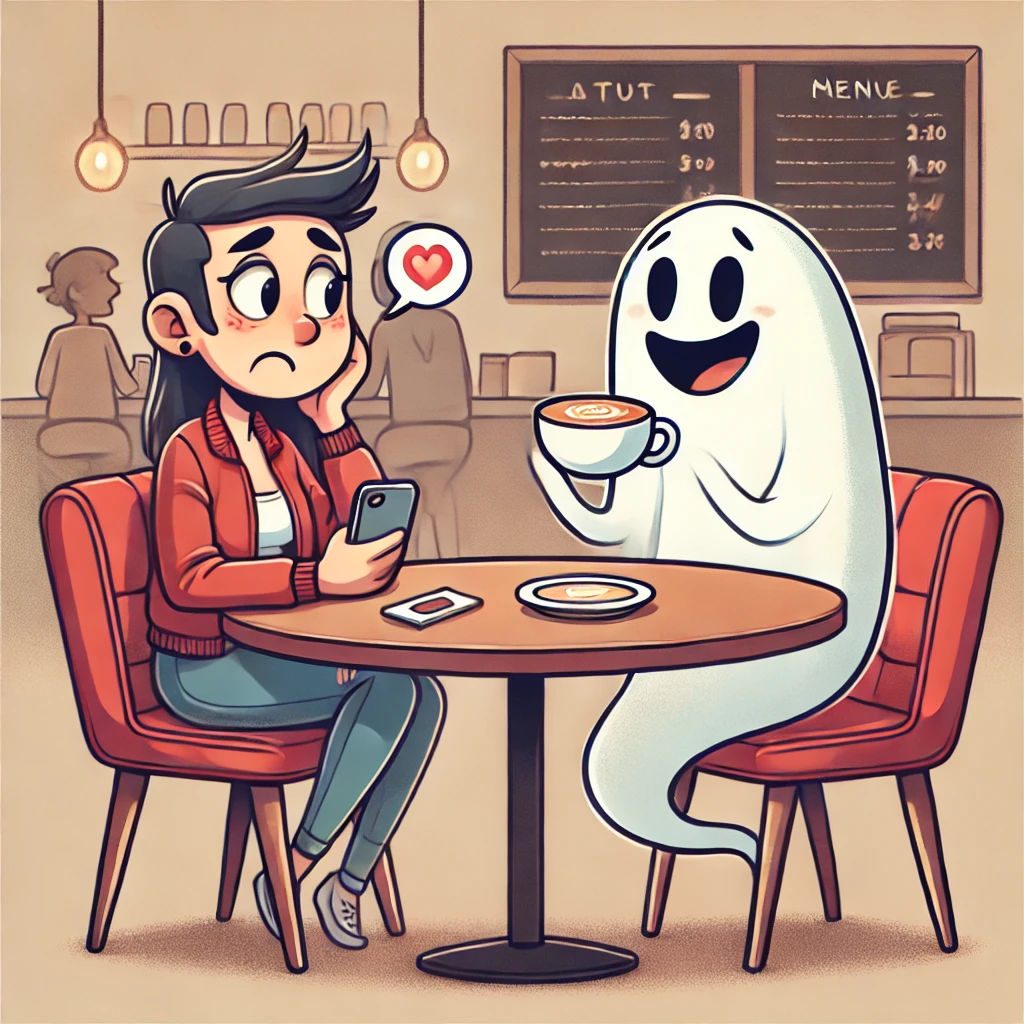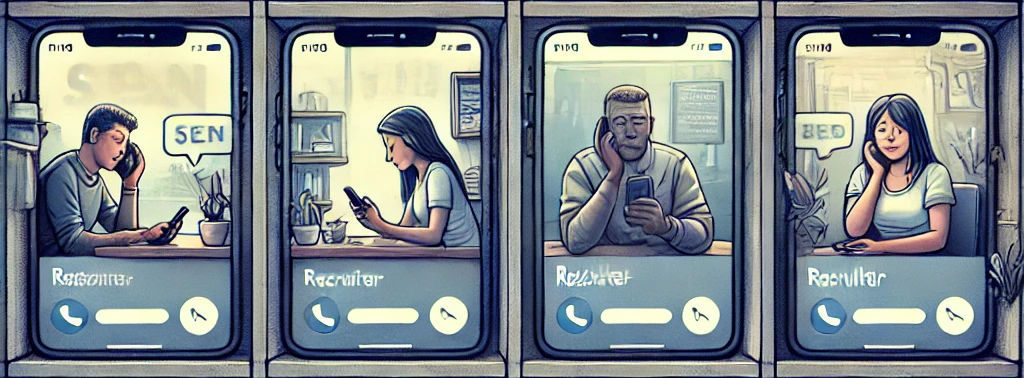Table of contents
Open Table of contents
Professional dating
I’m happily married, but sometimes my wooing efforts as an unemployed, desperate, sole financial provider feel a lot like dating. For instance, if I have a Zoom call today, you can bet I’m showering and putting on clean clothes. It isn’t enough to comb my hair and put on a clean shirt. The human mind is funny like that. It’s not like the person on the other end can smell me through the webcam.
Besides acting like a cam model, I’m also memorizing and touting all my best qualities on repeat, adjusting my profile to get more keyword hits. After all, look at this garbage resumé parser output:

Notice that ihiretechnology.com called me out because my resumé didn’t include the term, “programming”, though after 10 years of doing a wide variety of coding in many languages, I’ve come to believe I can do a bit of “programming”.
Can you imagine if you could deploy a Tinder profile analyzer to find your ideal romantic partner and you specified “6-pack” in your requirements only to discover that the analyzer had disqualified users who had “8-pack” in their profile? 👎🏼 What a loss! What this resume parser lacks is the notion of implies. 8-pack implies 6-pack!!
8-pack implies 6-pack!!
Anyways… The rant about poor tooling is for another post. Today I want to talk about another dating concept that seems to be creeping into the professional landscape:
Ghosting
Modern technology has kicked face-to-face conversations to the curb, traceable all the way back to the invention of the telegraph. But have manners gone out the window, too? It’s so convenient in the dating world, if you are not interested in a potential suitor, to simply ghost 👻 and digitally disappear into the ether. It’s a painless, guiltless exit strategy.

Professional ghosting
In the professional world, one would imagine there is a little more accountability, right?
As a software engineer, I don’t simply abandon tasks and leave half-written code lying around to inevitably crash systems precisely at their next deployment. Sure, software engineers try different approaches and abandon the ones that don’t work, but there’s steps to pivoting that involve more than just dead-brained ignorance. You have to clean up your initial attempts before settling on an approach that works.
Professional communication should work the same way. How many loose ends are recruiters leaving behind? How many people, who view communication threads with recruiters as threads of hope, are left staring at a dead conversation, not wanting to rush the decision making process lest they be automatically rejected?

The future of recruiting
LinkedIn has published “The Future of Recruiting, 2024”, which provides insights into the state of recruiting today. As in nearly every profession, generative AI is becoming a core tool in recruiting. Has the impersonality of AI transformed our former best friends of industry into emotional zombies? I remember when meeting with a recruiter happened in person and sometimes over a beer (or three). How farfetched does that sound nowadays?
Nevertheless, LinkedIn would have you believe that Gen-AI is going to improve personalization. 😳 What in the…? Imagine that! We need AI to be more personal. Potential candidates are more likely to respond if you reach out with a personal message, so augment your natural human communication style with artificial intelligence to come across more… personal?
But perhaps, it’s this same abandonment of personality that justifies simply leaving conversations to rot and decompose, forgotten amidst the ever-present hordes of new, juicy, applications that keep rolling in. If one side of the interaction becomes more automated and less personal, what incentive is there to offer any kind of closure to a stranger you simply wanted to use to earn a commission? There’s no need to wrap things up nicely because in this market, there will always be more than enough suitors for the next position.
Besides therapy, what can I do if a recruiter ghosted me?
The inner struggle we face when waiting on a recruiter is tricky: we don’t want to nudge them too much for updates, fearing we’ll rush the employer into a hasty ‘no’ just to move things along. But as days pass, it starts to feel like a silent rejection. Maybe you had a few great dates (interviews) with this employer and were expecting to schedule that final date to make things official. Our emotions are closely tied to the responsiveness of our matchmaker in this process—the recruiter.
So, what can you do as the recruiter and employer fade into the background, feeling more like a dream than reality? I saw a Reddit post where someone joked about turning to drinking to cope with the wait. The advice that followed was solid — replace it with something more positive, like physical exercise. That’s sound advice, but here’s an extra tip: set a personal boundary for how long you’re willing to wait before deciding the recruiter has gone full phantasm. When that time comes, take control and seek closure yourself.
If I’ve learned anything from the movies: if you’re seeing a lot of dead people, maybe you, too, are dead. Prove them wrong and send that ghastly recruiter a quick note that doesn’t rush along the process, but simply shows them that you still care about the position.
Try sending a message like this: “Hi [Recruiter’s Name], I hope you’re well! I wanted to check in on the status of my application and see if there’s any update. If the process is still ongoing, I’m very interested. Otherwise, I’d appreciate any feedback if it’s available. Thanks for your time!”
This way, you get to move on gracefully, regardless of the outcome.
What can I do if I’m a recruiter and the urge to ghost is high?
Alright, let’s be honest—the question sounds a bit loaded, as if ghosting is always intentional. But with hundreds of applicants for every job and a market flooded by mass layoffs, it’s easy to feel overwhelmed. You might expect me to point a big, blaming finger at corporations that lose their cool at every market shift—and you’d be right. The job economy right now is volatile beyond measure. While past generations could expect a 30-year career with one company, today’s workforce is lured into promising roles and just as quickly discarded—like tissues on the nightstand of a teenage boy.
Not only does this mean you have a massive number of resumes to sift through, but it means you probably have a lot of open lines of communication and only so many hours in a day. What can be done?
Automate courtesy responses. How about a quick little ping like, “Hey! Just wanted to let you know we’re still reviewing applications and will reach out with updates soon.” I know I wrote that myself, but reading it back sure does warm my heart. How I’d love to see a message like that hit my inbox.
Give polite closure. When you know that a candidate is not going to make it, give them the bad news! Set up reminders to follow up with all of your leads. In software engineering, we have the concept of “dangling references”. Put simply, they are variables that refer to entities that no longer exist. They create confusion and inefficiency in software. Just the same, leaving candidates in limbo disrupts their lives and adds unnecessary noise to the hiring ecosystem. A quick, decisive update keeps the process smooth and respectful for everyone.
Closing the casket
If expectations in career etiquette have shifted, have they done so for candidates, too? Are we still pretending cover letters matter? Do we still need to act like we’ve fallen in love with a company’s “culture” or “values”—buzzwords that, honestly, we know little about?
Maybe the job landscape is more cutthroat than ever, and that’s fine. But let’s acknowledge it. Ditch those outdated cover letter fields in online applications. Integrate with LinkedIn and skip the PDF resume—LinkedIn is already a dynamic, digital resume that’s easier to update.
Let’s get straight to it: adopt calendar scheduling systems across the board. Forget the cold outreach. Just connect me directly with the employer, add the job requirements in the event notes, and let me accept or decline. I’ll save my personality for the first interview. I’ll work through the take-home test, the live coding sessions, the cultural fit rounds. I’ll prove that I am (or am not) qualified. And if I’m not, feel free to ghost me—I didn’t know you, anyway.